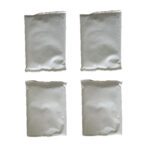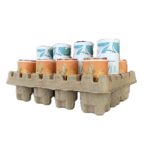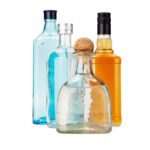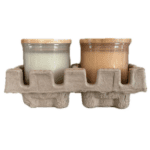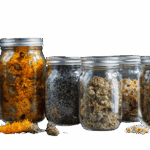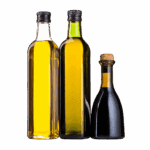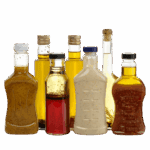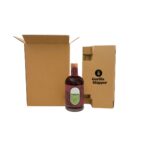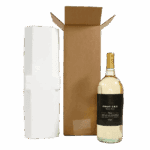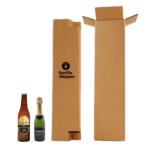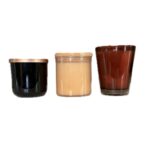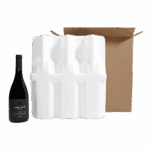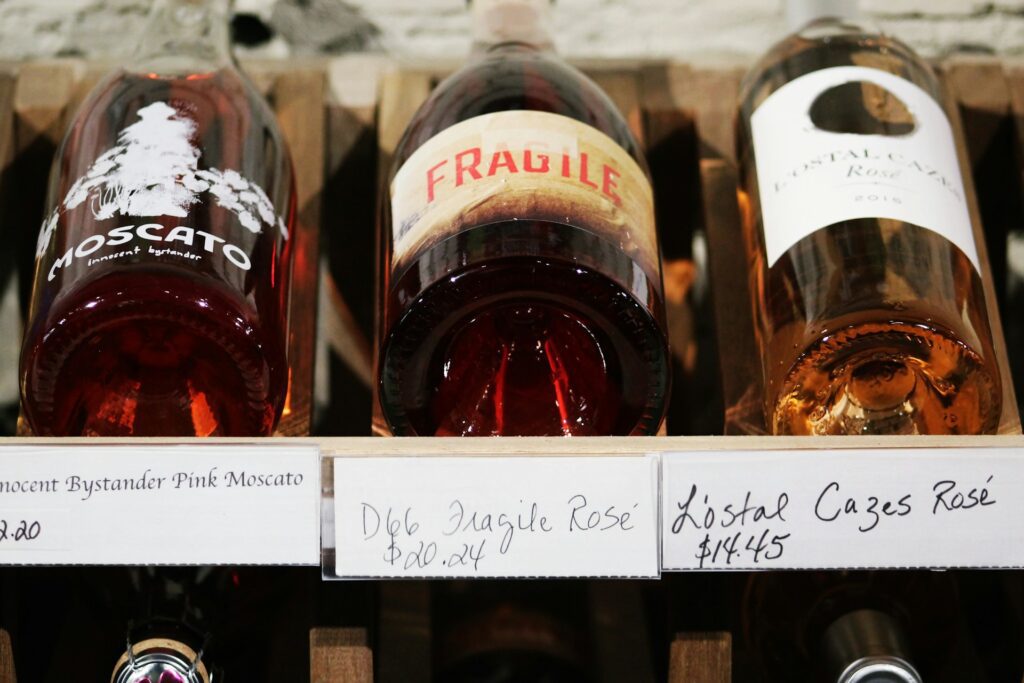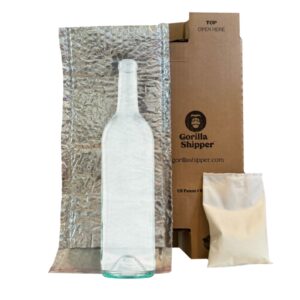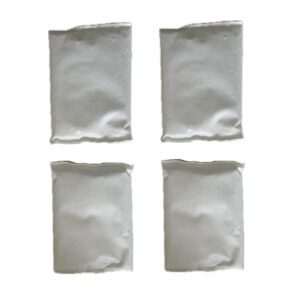Glass vs. Plastic Bottles: Which One Should You Use?
In today’s increasingly eco-conscious society, the debate between glass vs. plastic bottles is a hot topic. As we strive to make environmentally-conscious decisions, it becomes crucial to meticulously examine the advantages and drawbacks of the various alternatives at our disposal, ensuring we select the most sustainable path.
This article helps uncover why one might use glass bottles instead of plastic and weighs mitigating factors such as sustainability, potential health concerns, and practicality. With an in-depth understanding of the available choices, you can judiciously determine the bottle type that resonates most closely with your beliefs and objectives. Let’s dig in!
Understanding the Materials: Glass and Plastic
Glass and plastic bottles are both versatile containers, but their origins vastly differ. A blend of silica sand, soda ash, and limestone help craft glass bottles. These materials come to life as they meld together inside the intense heat of a furnace. Once molten, the fiery concoction is skillfully shaped into the desired form, ultimately solidifying as it cools.
In contrast to glass, plastic bottles emerge from the marriage of petroleum-derived elements, such as polyethylene terephthalate (PET). The raw materials undergo a transformative melting procedure before becoming a part of the packaging process. Once liquefied, they are carefully molded into many shapes to meet the requirements of different products.
When comparing glass vs. plastic, glass bottles boast several advantages over their plastic counterparts. Impervious to odors and flavors, they remain unblemished even when exposed to strong-smelling or tasting substances. Another reason why you should use glass bottles instead of plastic? Glass bottles allow for countless recycling cycles without any degradation in quality or strength.
Advantages and Disadvantages of Glass Bottles
Understanding the pros and cons of glass bottles is integral to making informed decisions. Glass bottles typically outlast their plastic counterparts and are a more cost-effective choice in the long haul. Along with lasting longevity, glass bottles offer health advantages by avoiding potentially harmful chemicals that may leach into stored contents. As a result, the consumption experience is safer.
In assessing environmental ramifications, glass emerges as the superior option, given its ability to be recycled infinitely without compromising integrity or robustness. By choosing glass, you actively curtail waste and conserve resources, thereby championing sustainability. Despite the ubiquity of plastic bottles, their manufacturing process extracts a hefty toll on our planet. Admittedly, glass bottles might not appeal to everyone, as they are considerably heavier and more prone to shattering – factors that could dissuade some consumers.
In the glass vs. plastic bottles debate, you must weigh the benefits and drawbacks to determine which option best suits your needs and priorities. Glass bottles offer undeniable advantages concerning health and environmental impact. Nevertheless, for a precise and well-rounded decision, it’s essential to incorporate cost, availability, and convenience into the multifaceted framework of factors that guide our ultimate choice.
Advantages and Disadvantages of Plastic Bottles
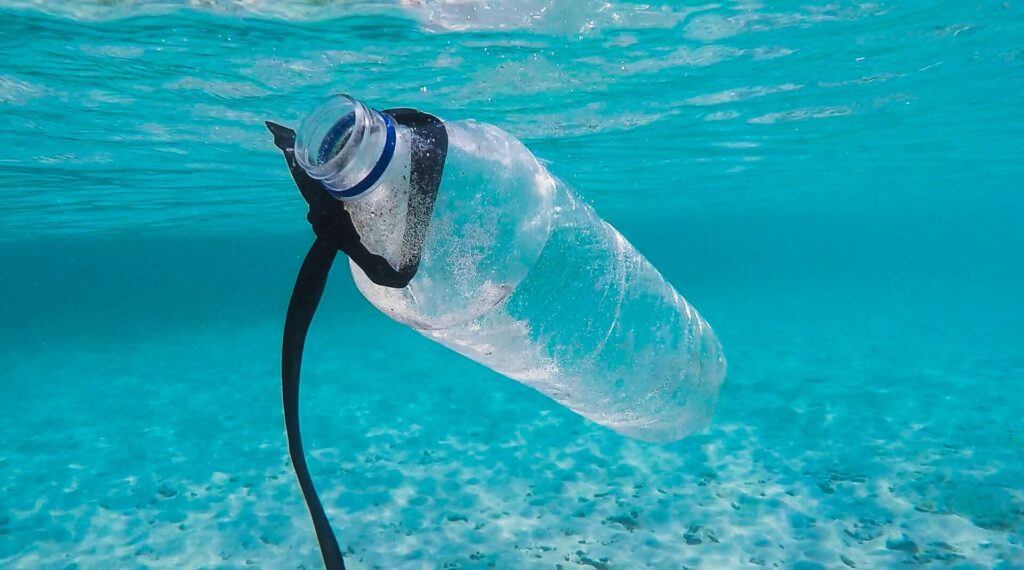
Plastic and glass bottles each possess their own set of advantages and disadvantages. On the one hand, plastic bottles offer increased durability over their glass counterparts. Due to their lightweight and shatterproof properties, they can withstand repeated and rough use conditions. Additionally, the innate ability of plastic bottles to resist spills renders them a fitting selection for those seeking convenience during their busy routines.
Nonetheless, one must not overlook the ecological consequences of plastic bottles, which inflict a more significant toll on our planet than their glass counterparts. The result often leads to consumer dissatisfaction when considering ecological issues. In comparing the cost and availability of glass vs. plastic bottles, it is worth noting that glass options offer more benefits due to their recyclability and overall lower environmental impact. These factors may make some consumers and businesses prefer the use of glass bottles instead of plastic.
Both glass and plastic bottles display varied convenience and use case scenarios. For example, plastic bottles are fan favorites for sports and casual settings due to their portability. Glass bottles, on the other hand, are more favorable for storing perishable items and beverages, thanks to their ability to maintain freshness. As a result, the reasons why people use glass bottles instead of plastic depend on their requirements and aspects like resilience, health advantages, ecological repercussions, expense, and practicality.
Comparing Use Cases for Glass vs. Plastic Bottles
Comparing the use cases for glass vs. plastic bottles requires a thorough evaluation of the advantages and disadvantages of each material in different contexts. By examining the optimal and least favorable uses for both types of bottles, businesses can make informed decisions based on their specific needs.
The appeal of plastic bottles lies in their lightweight nature, resistance to shattering, and generally budget-friendly pricing, which renders them an enticing option for our daily routines. Despite these advantages, plastic bottles may release chemicals when exposed to heat or sunlight and contribute significantly to environmental pollution due to low recycling rates.
These reasons are why many prefer to use glass bottles instead of plastic. Glass bottles excel as an option due to their chemical-free composition, remarkable recyclability, and exceptional ability to safeguard the beverages’ taste and quality from any compromise. They are ideally suited for premium drinks, home-brewed products, or artisanal beverages that demand an elegant presentation.
Protect Your Glass Bottles with Gorilla Shipper
Choosing between glass and plastic becomes clear when grasping the distinctions between these two materials. Each material possesses a distinct set of pros and cons, with their applications chiefly influenced by elements such as eco-conscious goals, environmental repercussions, recycling potential, expenses, and possible health implications.
We recommend carefully assessing your needs and weighing your options when deciding between glass vs. plastic bottles. If you go for glass bottles, choose Gorilla Shipper for your packaging needs. We offer eco-friendly packaging solutions for glass bottles of all sizes. Browse our Hexabox and molded pulp shippers to find the best solution for your needs.


